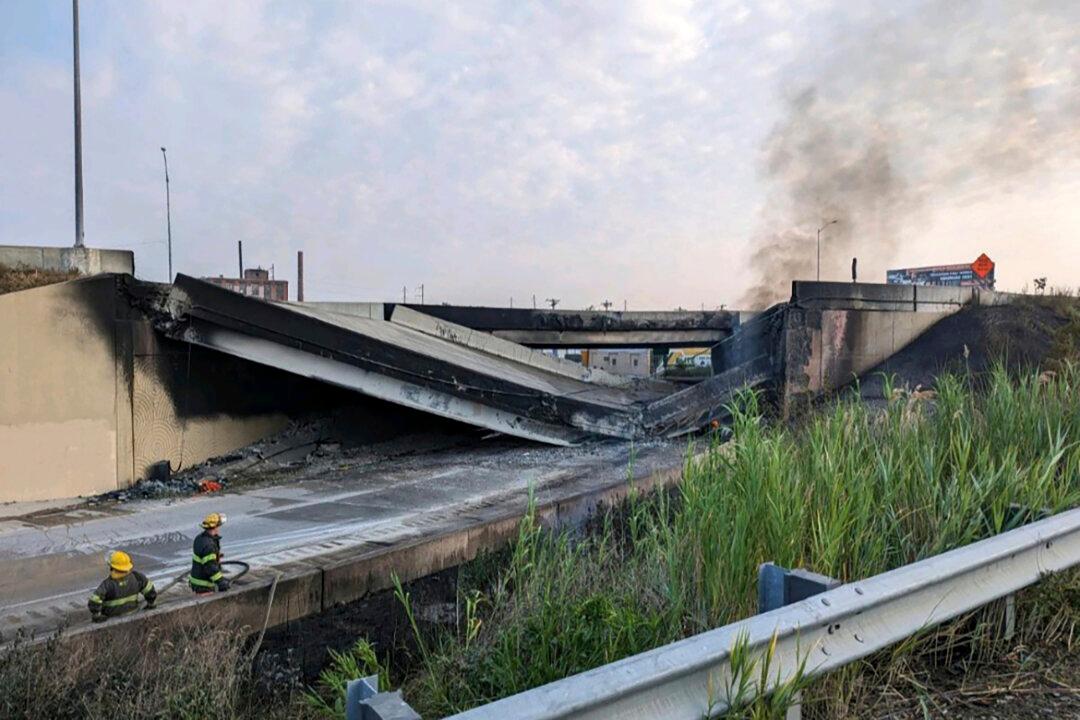A northbound section of Interstate 95 in northeast Philadelphia collapsed on June 11 after a tanker truck burst into flames beneath an elevated section of the highway, according to officials.
“Today’s going to be a long day. Obviously, with [I-95] northbound gone and southbound questionable, it’s going to be even longer,” Dominick Mireles of the Philadelphia Office of Emergency Management, told local media outlets.





